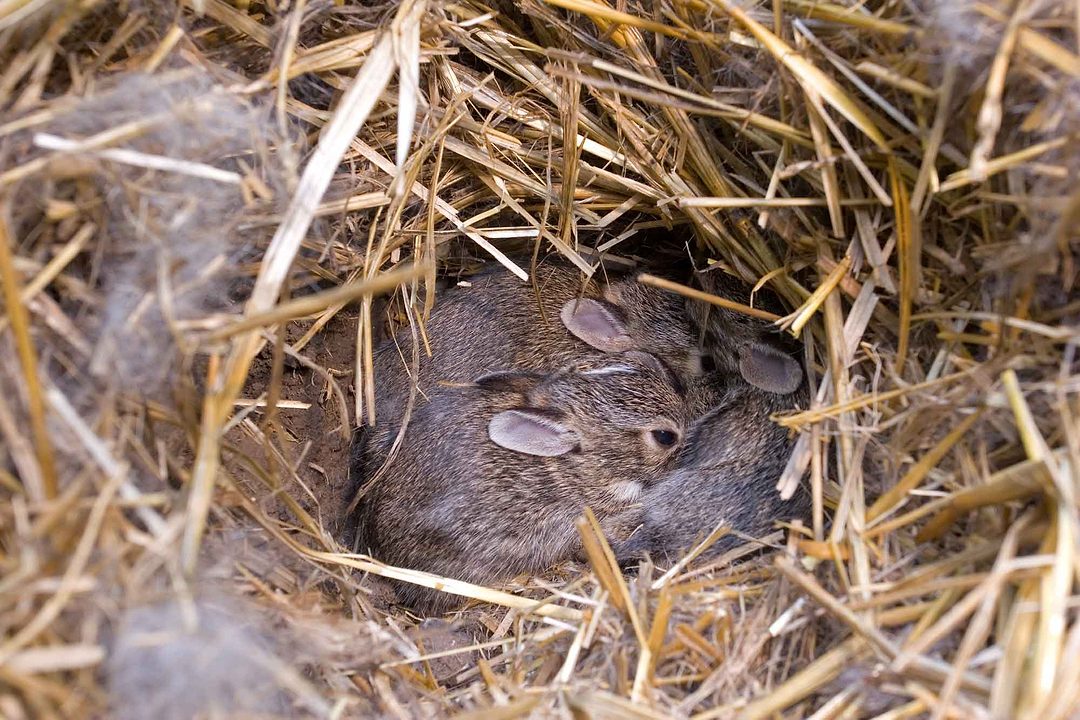What would you do if you were walking along and came across a nest in the ground full of baby bunnies? Or perhaps a little bird hiding in the grass or a baby squirrel lying on the ground? What you would probably WANT to do is pick them up, cuddle them, and maybe even take them home to try to take care of them yourself. But it is so important to know what is best for these babies! Baby wildlife belongs in nature and does best when raised by their parents. Here are some tips on how to make sure we can keep wild babies safe!
 Courtesy of the author
Courtesy of the authorBirds
Just like humans, birds go through stages of development. One of the most vulnerable stages of development in the bird lifecycle is the fledgling stage. This is the stage we wildlife rehabilitators get the most calls about. Babies at this stage are fully feathered and able to hop. During this stage, the baby bird is too big for the nest but not yet old enough to fly or be on its own. So, the baby bird fledges, meaning they jump out of the nest and instinctively hop to the nearest underbrush or hide in the grass. From there, they have a special chirp that their parents can hear from far away, and their parents will feed them on the ground until they are old enough to fly away. Many people assume baby birds at this stage of development are in trouble because they are not able to fly. This is not true! If it is in a safe area, the best thing you can do if you see a fledgling is simply leave it there. Sometimes, fledglings won’t hide very well, though. If the baby bird is out in the open, move it to the nearest hiding spot, such as under a nearby bush. The parents will find their baby. Just like with bunnies, it is a myth that the mother bird will smell humans on her baby and reject it. The other stages of development for birds are hatchling (a baby that has just hatched) and nestling (a baby that is meant to be in the nest). If you see a hatchling or a nestling on the ground, they need help! The best thing you can do is call your local wildlife rehabilitator for instruction. Sometimes we can help you re-nest the baby. Other times, we can instruct you how to nail a box to the side of the tree it fell from and make sure the mother is feeding it. What you should never ever do is try to raise a baby bird yourself.
 Courtesy of the author
Courtesy of the authorSquirrels
In the spring, wildlife rehabilitators like me get lots and lots of calls about baby squirrels. Many people choose springtime to cut down trees and do landscaping, which disrupts nesting squirrels. Squirrels are very good mothers, and most of the time, reuniting babies with their mothers is very easy. If you find a baby squirrel, the first thing you should do is call a wildlife rehabilitator to instruct you how to reunite them with their mother. If there are any bugs around the baby or if the baby is extremely thin, that means they need help! You should put the baby in a box with some soft blankets and something to keep it warm, such as a heating pad set on low or a hot water bottle. Make sure the box is in a dark, quiet area until you can reach a wildlife rehabilitator for help. Never ever try to feed a baby squirrel! It is very easy to push the liquid down its throat the wrong way, which can kill them.
 Courtesy of the author
Courtesy of the authorBunnies
Bunny nests look like small depressions in the grass. When the mother bunny makes her nest, she digs a shallow hole and bites off the soft fur from her belly to line the nest and make it comfy and cozy for her babies. She then covers them up with dried grass. She will ONLY visit the nest to feed her babies twice a day, once at dawn and once at dusk. She does this because many animals like foxes, coyotes, and owls eat bunnies, and she does not want to attract any predators to the nest. Wildlife rehabilitators like me get lots and lots of calls about baby bunnies because people assume they are orphans. After all, the mom is never around. This is hardly ever true! If you find a nest of baby bunnies, the best thing you can do is simply leave them alone. If you accidentally tamper with the nest, that’s okay! Just put the bunnies back in the nest and cover them up. It is a myth that the mother will smell humans on them and reject them.
The most important thing to keep in mind during wildlife nesting season is that nature knows just what to do. There are times when these babies need some help, but most of the time …. if you care, leave them there! Please, never try to raise baby wildlife yourself, as it is unsafe for both the baby animal and you. The best thing to do is immediately call your local wildlife rehabilitator. We are always happy to help! mass.gov/service-details/find-a-wildlife-rehabilitator, facebook.com/freshstartwildliferehab


